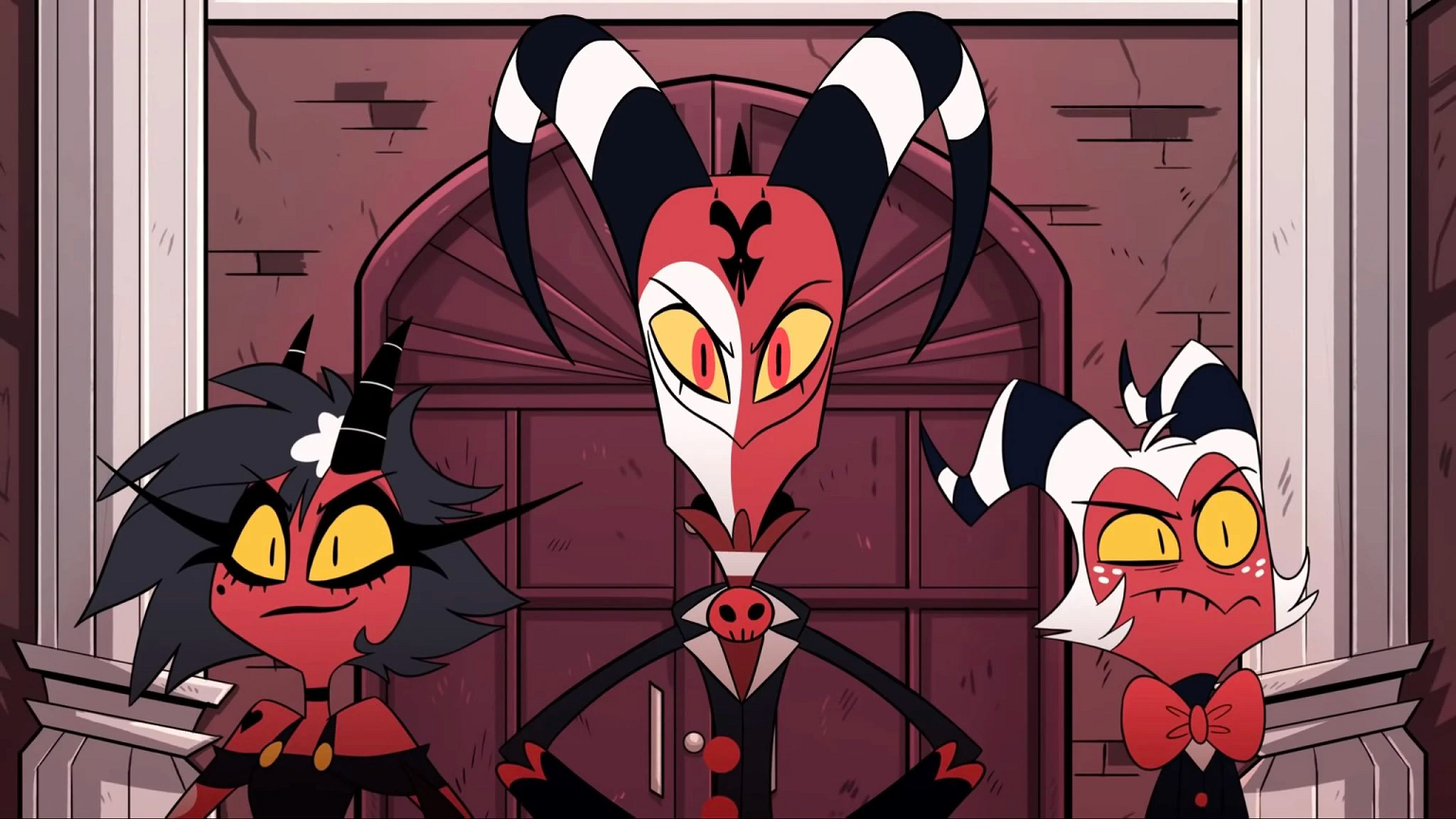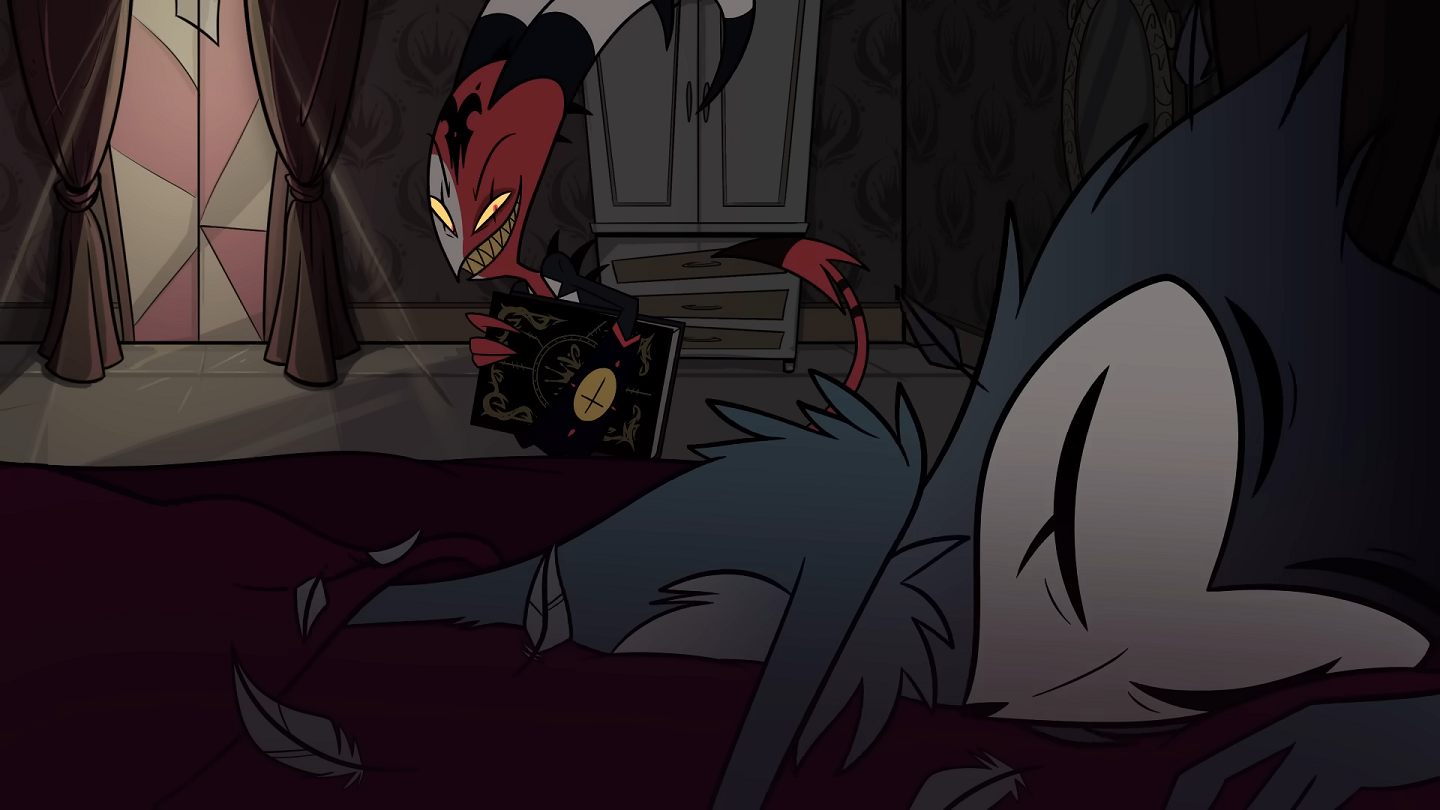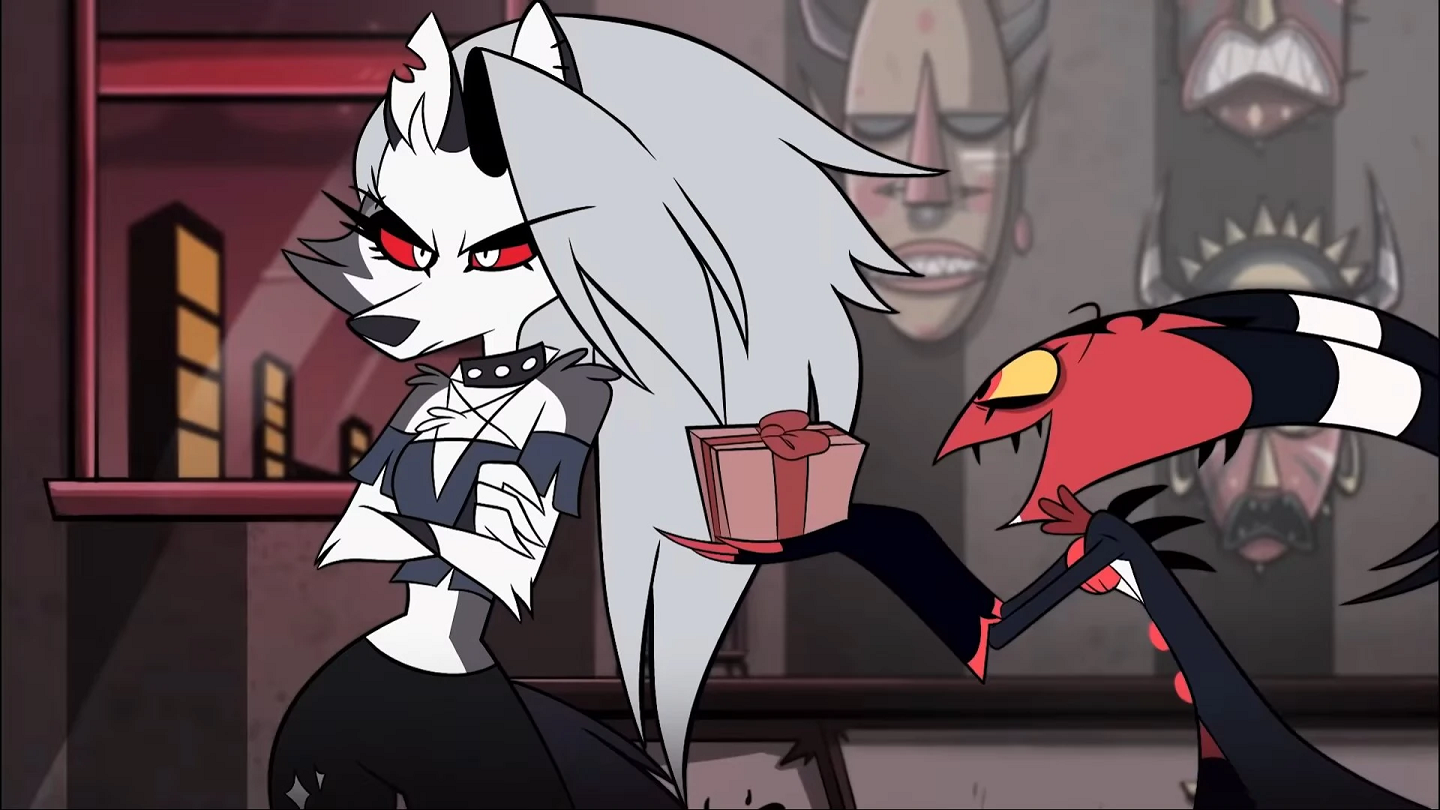Helluva Boss Episode Review: Pilot
This review has spoilers for the pilot episode and later entries for Helluva Boss.
Even though I did an overall review of why you should watch the Helluva Boss and the Hazbin Hotel pilot, I’ve wanted to deep dive into these series individually as I've done with other shows like The Owl House and Amphibia. While waiting for the Hazbin announcement of when it premieres and where it will stream, it’s an excellent time to tackle Helluva Boss episode by episode. Both series are triumphs of indie animation, and the accessibility of these shows being free on YouTube cannot be overstated enough for their success. I’ve fallen deeply in love with these characters, this world, and the romance of Blitzo and Stolas.
Looking back at how far the show has come, this is a Helluva Boss hindsight review starting with the pilot episode (which you can watch for free here).
I’m a firm believer that pilot episodes are some of the hardest things to pull off. The creators must tackle the difficult task of establishing the characters, world, and story within a specific timeframe. Helluva does this feat spectacularly in 11 minutes. It quickly showcases the dynamics among the main cast, setting up this workplace comedy with demons. While I’m sure a few things plot-wise might have been tweaked in the three years since this release, the core components of what makes Helluva Boss the success it is are still there.
At the heart of the show are the characters. Blitzo is the messiest protagonist, and I’m here for it. He’s an incredibly flawed individual, and with the context of the later episodes, the foundation of who he is is carefully laid out here. He wants a family, something he calls his employees. Paired with the knowledge of adopting Loona and his family background, it’s understandable why he goes to such great lengths, like stealing Stolas’ grimoire, to make this dream possible. He suffers from abandonment issues and wants to surround himself with people to care about. He’s also afraid to let people get close to him, thus why he picks on Moxxie, for example. On the surface, his dialogue in the pilot seems like fast, snappy jokes, but it’s laying out Blitzo’s character arc.
Each central cast member also gets a significant moment in the pilot, showing off how they function in the narrative. At the start, they’re all caricatures, including Blitzo. This is the point of the pilot. It gives us enough for each person to see what makes them tick before expanding on them. Moxxie is the neurotic husband of the bright and cheerful Millie, Loona is the full-of-attitude teenage adopted child of Blitzo, and Stolas is Blitzo’s benefactor who allows our protagonist to run his business. Explicit power dynamics are going on between Stolas and Blitzo, which, on the surface, seems like it could be abuse. Though, I’ll dig into why this isn’t as much of the case in a few episodes and why episode 2, “Loo Loo Land,” was a brilliant move for Stolas’ character early on.
I enjoy watching the pilot and seeing the main voice actors adjusting to their roles. Richard Horvitz settles in quickly as Moxxie, but that’s no surprise as he’s a legend in the business. Erica Lindbeck is fantastic doing double duty with Loona and Millie, the latter of which goes to the ever-talented Vivian Nixon starting the next episode. Before Bryce Pinkham made Stolas his own, Brock Baker was excellent at establishing our favorite demon prince.
But it’s Brandon Rogers that constantly steals the show. Between knowing his comedy sketches from his own YouTube channel and that he’s one of the main co-writers for Helluva Boss, Blitzo is absolutely written for him. That’s not a bad thing in any way. It’s a role that plays to his strengths and comedic timing. Blitzo is the culmination of Roger's work, and it shows.
One thing I learned going into Helluva Boss and Hazbin Hotel was that both shows were musicals. It was an incredible surprise to experience this reveal. In this pilot, the I.M.P. jingle feels like a gag, but in hindsight, it’s just the beginning of the fantastic work to come. The consistency of quality musical numbers is one of the most impressive feats of this series. Sometimes the songs are sweet little diddles sung between Moxxie and Mille, like in the closing credits here. Other times, they are showstoppers which will be discussed in a later review (I love, love, love Ozzie's song). These two series being musicals is a major selling point, and I always mention it when I tell people about this show.
One point that makes the pilot so rewatchable (and Helluva as a whole, too, for that matter) is the background gags. Blitzo’s office whiteboard is one of my favorite things to check out during each entry. It’s not as elaborate here in the pilot as, say, Blitzo’s entire horse story and the complex relationships among the horsey characters in a later episode, but it does tell the viewer that the background is important to keep an eye on.
Helluva Boss constantly informs the audience about this world and Hazbin Hotel, as both shows are set in the same universe. Just in Helluva’s pilot episode, there are nods to Charlie’s interview on 666 News, the news station itself, the turf war between Cherri Bomb and Sir Pentious, mentions of Charlie’s father Lucifer, and glimpses at the other Overlords of Hell. We know so much about this realm before Hazbin has even had its first official episode, thanks to Helluva. Hazbin also returns the favor by inferring the world of Helluva, like how later the villain Striker has an angel-blessed gun. He only has access to that, thanks to the yearly purge with which Hazbin’s pilot opens. Together, the two shows are building such a vibrant world.
And the best part of it is that you don’t need it. I watched all of Helluva’s first season before knowing that Hazbin even existed. Helluva stands on its own two feet without its flagship series, which is a sign of fantastic storytelling. Knowing about Hazbin is fun for a deep-diving fan like me who loves combing through episodes of Helluva to assemble these world-building puzzle pieces. But for a more casual viewer, the shows being able to hold their own space is vital. We don’t know how Hazbin will do once it officially premieres, but Helluva Boss is solid as a standalone series so far.
The only real criticism I have about the pilot is what I stated in my initial review: Helluva Boss’ pilot is the weakest episode of the entire series. That in no way means it’s bad because it’s still a solid introduction. But it sometimes feels like it’s trying too hard to be overly edgy. Despite only being three years old, parts of the pilot feel dated, like internet humor from a decade ago. I think the shock humor works better once we know the characters. The later edgy jokes are far more character and story-driven, but here in the pilot, it’s just Blitzo casually dropping an R-slur right out of the gate because he can.
Though, that moment made for a much funnier joke in season two when Blitzo stops himself from a second R-slur. I am here for a group of creators that grow, adapt, and are still funny while pushing boundaries without using harmful rhetoric. I respect the hell out of these creators for that moment.
The pilot’s writing is rough at times because it’s clear that the show is just starting to get its feet under it. As I said, it’s still a solid pilot, but it’s nowhere near perfect. I usually tell people that if they like this episode or think it’s just fine, then definitely stick with the show. This, to me, is the lowest point thus far, and it only goes up from here.
That is unless the humor isn’t for you. If this isn't your style of comedy, it won't get better. Helluva Boss will not be for everyone, which is okay.
Helluva Boss’ pilot episode is a great time and a fantastic start to this well-built world. The show's heart is the characters, and it’s an excellent introduction to how each of them functions within the narrative. The pilot does the job it needs to do, and starting with the next episode, the series begins to launch itself into the stratosphere where it is now one of the best current animated series running.
Also, I quote, “The FUCK is insurance!?” more than I like to admit.
Come back next time as we deep dive into Helluva Boss episode one, “Murder Family.”






